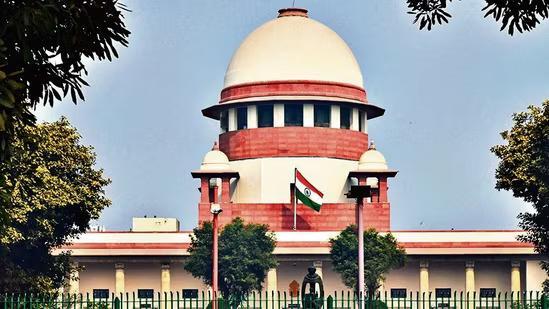
No Action Against Owners of 10 & 15-yr-old Diesel & Petrol Vehicles for 4 Weeks: SC
In a significant development, the Supreme Court has passed an order stating that no “coercive” action will be taken against the owners of over 10-year-old diesel and 15-year-old petrol vehicles in Delhi for a period of four weeks. This order was passed in response to an application filed by the Delhi government, which challenged the ban on these vehicles as a pollution control measure in the capital.
The Delhi government had moved the Supreme Court, seeking a stay on the ban imposed by the Environment Pollution (Prevention and Control) Authority (EPCA) on the use of 10-year-old diesel vehicles and 15-year-old petrol vehicles in Delhi. The EPCA had banned these vehicles to reduce the alarming levels of air pollution in the city.
The Supreme Court’s order is a temporary relief for the owners of these vehicles, who were facing the risk of having their vehicles seized or fined for violating the ban. The court’s decision will provide them with a four-week window to comply with the ban or take alternative measures to reduce their pollution footprint.
The Delhi government had argued that the ban was unfair and unsustainable, as many people in the city rely on older vehicles for their daily commutes. The government also pointed out that there was no adequate public transport system in place to support the ban, and that it would disproportionately affect the poor and the marginalized sections of society.
The Delhi government had also sought a modification of the ban, allowing owners of older vehicles to use alternative fuels such as compressed natural gas (CNG) or liquefied petroleum gas (LPG). However, the EPCA had rejected this proposal, stating that it was not a feasible solution in the short term.
The Supreme Court’s order is a significant development in the ongoing battle against air pollution in Delhi. The city has been struggling with severe air pollution for several years, with levels of particulate matter (PM) and nitrogen dioxide (NO2) far exceeding the safe limits set by the World Health Organization (WHO).
The Delhi government has been implementing various measures to reduce air pollution, including the ban on older vehicles, but the problem persists. The city’s air quality is often at “severe” or “hazardous” levels, posing significant health risks to its residents.
The Supreme Court’s order is a temporary reprieve for the owners of older vehicles, but it is also a reminder that more needs to be done to address the root causes of air pollution in Delhi. The city needs a comprehensive and sustainable solution to reduce its pollution levels, and the government and other stakeholders need to work together to achieve this goal.
The Supreme Court’s decision has also raised questions about the effectiveness of the ban in reducing air pollution. While the ban may have been intended to reduce pollution levels, it has also been criticized for being overly broad and unfair. The court’s order may provide a temporary reprieve for some owners of older vehicles, but it does not address the underlying issues that contribute to air pollution in Delhi.
In conclusion, the Supreme Court’s order is a significant development in the ongoing battle against air pollution in Delhi. While it provides a temporary reprieve for the owners of older vehicles, it also highlights the need for a more comprehensive and sustainable solution to reduce air pollution in the city. The Delhi government and other stakeholders need to work together to find a solution that balances the need to reduce pollution with the need to protect the rights of all citizens.
Source:






